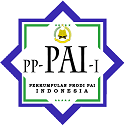MODEL-MODEL PERKEMBANGAN PEMBELAJARAN BTQ DI TPQ/TPA DI INDONESIA
Abstract
Along with the development of the times, more and more alquran literacy needs. The demands of alquran's literacy skills have become one of the spreading phenomena. Therefore, there is a non-formal education institution which is usually called the Alquran Education Park. Al-quran education parks are almost in every area and have a variety of alquran literacy learning methods. These methods vary both from the principle, characteristics, methods and stages. So with the diversity of methods, TPQ institutions can adapt to the needs and characteristics of students, The diversity of these methods is also considered to be able to complement the deficiencies of the methods with each other. This paper seeks to describe the models for the development of BTQ learning in TPQ / TPA in Indonesia. . The results of this paper will, be insightful while discourse and early action to develop BTQ learning in Islamic education institutions.
Keywords: al-Qur’an literacy; BTQ learning; al-Qur’an Education Park (TPQ)
Full Text:
46 - 58References
Budiyanto, H. (1995). Prinsip-prinsip Metodologi Buku IQRO’. Yogyakarta: Team Tadarus “AMM.
Gafur, A. (2013). Kajian Metode Pembelajaran Baca Tulis al-Qur’an Dalam Perspektif Multiple Intelligences. Madrasah: Jurnal Pendidikan Dan Pembelajaran Dasar, 5(1). https://doi.org/10.18860/jt.v0i0.2232
Hasunah, U., & Jannah, A. R. (2017). Implementasi Metode Ummi dalam Pembelajaran Alquran pada Santri di Pondok Pesantren Salafiyah Al-Mahfudz Seblak Jombang. Jurnal Pendidikan Islam, 1(2), 160–175.
Pransiska, T. (2015). Fenomena Konstruktivistik dalam Metode al-Barqy dalam Pembelajaran al-Qur’an: Perspektif Psikolinguistik. Hikmah Journal of Islamic Studies, 11(2), 31–46.
Srijatun, S. (2017). Implementasi Pembelajaran Baca Tulis al-Qur’an dengan Metode Iqra pada Anak Usia Dini di RA Perwanida Slawi Kabupaten Tegal. Nadwa, 11(1), 25–42. https://doi.org/10.21580/nw.2017.11.1.1321
Sulthon, M. (1999). Al-Barqy sistem 8 Jam. Surabaya: CV Penasuci.
Tan, C. (2014). Educative Tradition and Islamic Schools in Indonesia. Journal of Arabic and Islamic Studies, 14(0), 47-62–62.
Taufiqurrochman, R. (2005). Metode Jibril: Metode PIQ Singosari. Indonesia: Ikapiq Press, Malang. Retrieved from http://repository.uin-malang.ac.id/242/
Ulil Albab, dkk. (2004). Bimbingan Cara Mengajar Yanbu’a. Kudus: Pondok Tahfidz yanbu’ul Qur’an
DOI: https://doi.org/10.18860/jpai.v5i1.6520
Refbacks
- There are currently no refbacks.
Copyright (c) 2018 J-PAI: Jurnal Pendidikan Agama Islam

This work is licensed under a Creative Commons Attribution-ShareAlike 4.0 International License.
...............................................................................................................................................................
Editorial Office:
Fakultas Ilmu Tarbiyah dan Keguruan
Universitas Islam Negeri Maulana Malik Ibrahim Malang
Jalan Gajayana 50 Malang, Jawa Timur, Indonesia 65144
Phone (0341) 552398, Faximile (0341) 552398
E-mail: jpai@uin-malang.ac.id
J-PAI: Jurnal Pendidikan Agama Islam is licensed under a Creative Commons Attribution-ShareAlike 4.0.
...............................................................................................................................................................
Indexed by:



















